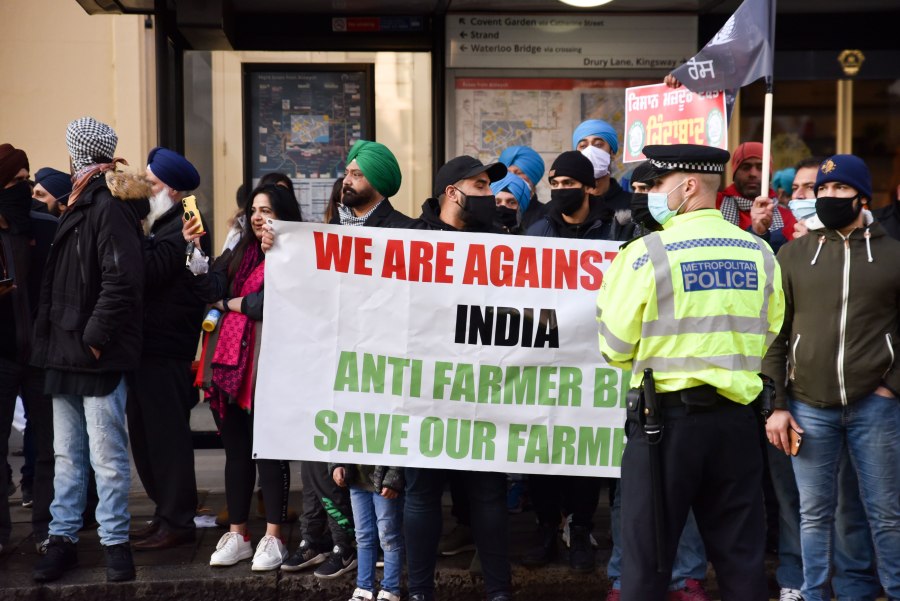
Thousands of people have protested in cities across the UK against new controversial farming laws being introduced in India.
The federal agricultural reforms, rolled out by Narendra Modi's government, have been branded unfair by India's farming organisations.
Around 30 unions have warned that the three new laws could cause a drop in earnings and encourage private companies to exploit the industry.
Hundreds of thousands of farmers from across the country have been protesting for days near the nation's capital New Delhi.
Protests have also been taking place across the world, including the UK, the US, Canada and Netherlands.
According to India's 2011 census, more than half of the country's working population comes from the agricultural industry.
The world's fifth largest economy is a leading producer of globally important foods such as rice, lentils, turmeric, black pepper, cloves and ginger.
Prime Minister Modi said on Saturday (12 December) that the three laws would encourage 'investment in agriculture and benefit farmers'.
"The aim of the all government reforms is to make farmers' prosperous," he said, adding that the private sector must help boost Indian agriculture.
But negotiations between the government and farming bodies have so far failed, with demonstrations and strikes now likely to grow.
Over the weekend, thousands of people protested in Birmingham, despite the city being under tier three Covid-19 rules.
Demonstrations have also been held in London and Leicester, as angry protestors held signs saying 'No Farmers, No Food'.
Arjan Singh, from Manchester, who attended the Birmingham protest, told BBC News that 'something had to change'.
"Everyone has come together as these reforms are very detrimental to farmers and only serve corporate interests which will leave the farmers with nothing," he said.
"I feel very proud to be here... it's a domino effect from India and we're trying to make the government see what's happening."
More protests have been planned in the UK in the coming weeks.
